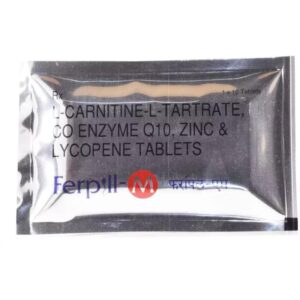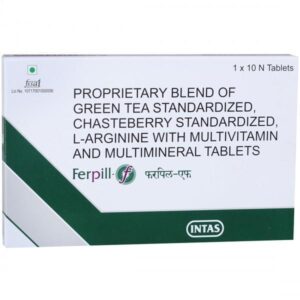L-ARGININE + VITAMIN D3 + GREEN TEA CAP
L-Arginine: L-Arginine is an amino acid that plays a crucial role in the body. It is primarily used as a dietary supplement to enhance athletic performance, improve blood flow, and support cardiovascular health. L-Arginine is converted into nitric oxide (NO), a molecule that helps dilate blood vessels and improve blood flow.
The mechanism of action of L-Arginine is its conversion into nitric oxide. Nitric oxide relaxes the smooth muscles in blood vessels, leading to vasodilation and increased blood flow. This can benefit individuals with conditions such as erectile dysfunction, high blood pressure, and coronary artery disease.
The recommended dose of L-Arginine can vary depending on the individual’s age, health condition, and the reason for using it. Typical doses range from 2-6 grams per day. It is important to consult with a healthcare professional to determine the appropriate dosage.
While L-Arginine is generally safe for most people when taken in appropriate doses, it may cause some side effects. Common side effects can include stomach pain, bloating, diarrhea, and nausea. In rare cases, higher doses of L-Arginine can lead to low blood pressure, allergic reactions, and an increased risk of bleeding in people with bleeding disorders or those taking blood-thinning medications.
L-Arginine may also interact with certain medications, such as blood pressure medications, diabetes medications, and nitrates, so it is important to inform your healthcare provider about any medications you are taking before starting L-Arginine.
Overall, L-Arginine can be a beneficial supplement for improving blood flow and supporting cardiovascular health. However, it is important to use it under the guidance of a healthcare professional to ensure safe and effective usage.
Vitamin D3: Vitamin D3, also known as cholecalciferol, is a fat-soluble vitamin that plays a crucial role in maintaining the health of bones and teeth and supporting normal immune system function. It is primarily used as a dietary supplement to correct vitamin D deficiencies.
The main source of vitamin D3 is sunlight, which stimulates its synthesis in the skin. However, it can also be obtained through certain foods such as fatty fish, fortified dairy products, and egg yolks. In some cases, a person may not be able to get enough vitamin D3 through sunlight or diet alone, leading to a deficiency.
Vitamin D3 acts as a prohormone, meaning it gets converted into its active form, calcitriol, by enzymes in the liver and kidneys. Calcitriol then binds to vitamin D receptors in target tissues, including the intestines, kidneys, bones, and immune cells, to regulate the absorption of calcium and phosphorus from the diet, promote bone mineralization, and modulate immune system responses.
The recommended dose of vitamin D3 varies depending on age, health condition, and the severity of the deficiency. Generally, a daily intake of 600-800 international units (IU) is recommended for most adults, although higher doses may be prescribed for severe deficiencies. It is important to consult with a healthcare professional to determine the appropriate dosage.
While vitamin D3 is generally considered safe, excessive intake can lead to toxicity, known as vitamin D toxicity or hypervitaminosis D. Symptoms of toxicity may include nausea, vomiting, weakness, constipation, weight loss, and high levels of calcium in the blood, which can cause kidney damage. It is essential to follow the recommended dosage and avoid taking excessive amounts of vitamin D3 without medical supervision.
Additionally, certain individuals may be more susceptible to vitamin D3 side effects or need special considerations. This includes individuals with certain medical conditions, such as hypercalcemia, kidney disease, or sarcoidosis, as well as those taking medications that can interact with vitamin D3. Consultation with a healthcare professional is important to ensure safe and effective use of vitamin D3 supplementation.
Green Tea Cap: Green Tea Cap is a dietary supplement that contains an extract of green tea leaves. It is commonly used as a natural remedy for various health conditions, as well as for weight loss and antioxidant properties.
The main active ingredient in Green Tea Cap is catechins, which are a type of flavonoid known for their antioxidant effects. Green tea is believed to offer several health benefits due to its high catechin content. These benefits include cardiovascular protection, improved brain function, enhanced metabolism, and potential anti-cancer effects.
The recommended dose of Green Tea Cap may vary depending on the concentration of catechins in the supplement. Generally, it is advisable to follow the instructions provided on the packaging or consult with a healthcare professional. However, typical dosages range from 300 to 400 mg, taken 2-3 times per day.
While green tea is generally considered safe for consumption, some individuals may experience side effects. Common side effects include digestive issues such as stomach upset, constipation, or diarrhea. Green Tea Cap also contains caffeine, so it may cause insomnia, increased heart rate, or jitteriness in individuals sensitive to caffeine.
In rare cases, green tea extract has been associated with liver damage, although this is more commonly observed with high-dose supplements or when taken in combination with other medications or supplements. It is recommended to consult a healthcare professional before using Green Tea Cap, especially if you have any pre-existing medical conditions or are taking other medications.
It is important to note that Green Tea Cap is a dietary supplement and should not be used as a substitute for a healthy diet and lifestyle. It is always best to make dietary changes in consultation with a healthcare professional.


